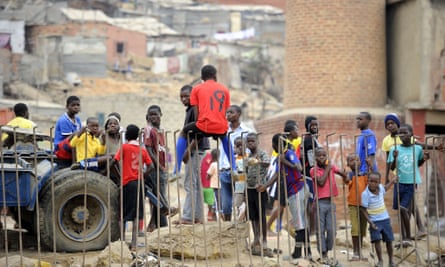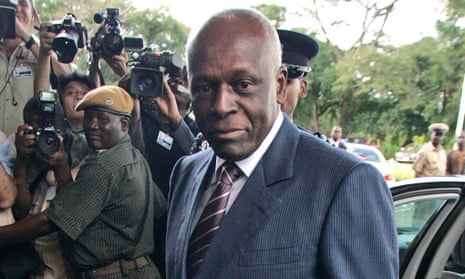As a group of young Angolans gathered in the capital Luanda for their regular book club, authorities clearly felt the act of reading was so subversive that it was tantamount to a rebellion, and state security forces immediately intervened.
Thirteen of the readers were arrested in a raid last week, along with two others for good measure. All have been detained and distributed across various prisons in the city.
“Thirteen Angolan citizens were caught red-handed as they prepared to carry out acts aimed at disrupting public order and security in the country,” said the interior ministry in a statement.
The attorney general went further: “These acts constitute crimes against the security of the state, as a crime of rebellion. As such, the competent bodies of the state must take action to avert the worst,” General João Maria de Sousa said.
So what were they up to? Were they plotting a coup d’état? Were they distributing weapons ahead of the revolution? The reality was even worse. These young men, their hearts filled with rage and protest, were reading.
This incident reveals much about modern Angola, where the exercise of basic rights – to assembly, to protest, the right to read – has become a subversive act.
The power of ideas
Some of those arrested have a political history: rapper Luaty Beirao has been arrested for protesting in the past, and Manuel Nito Alves was jailed for two months in 2013 for printing T-shirts critical of the president.
On the reading list were two books that give Angolan authorities sleepless nights. The first was Gene Sharp’s seminal From Dictatorship to Democracy: A Conceptual Framework for Liberation, which describes itself as “a blueprint for nonviolent resistance to repressive regimes”. The second was Angolan journalist Domingos da Cruz’s book, whose title translates as “tools to destroy a dictator and avoid a new dictatorship”. Da Cruz himself was among those arrested.
“It doesn’t make any sense to me… I’m at a loss for words,” said Claudio Silva, a friend of the arrested activists.
Since March 2011, the country’s youth movement has been calling for protests aimed at bringing down the president, who has ruled Angola for 35 years.

Paula Roque, an analyst at the International Crisis Group, says the recent wave of arrests is: “a clear indication of how nervous the Angolan government has become in the face of an economic crisis and greater exposure of its fragilities internally.”
“The Mount Sumi massacre in April and now the wave of arrests in Luanda, Benguela and Cabinda – all for different reasons but amounting to individual activists ‘threatening’ the state – provides a strong indication that we may be witnessing an increase in repression and state violence,” she says.
That a book club has become the definition of rebellion shows just how paranoid and insecure the state has become: fifteen young men are now in prison, because they dared to discuss a future different from the one Dos Santos has decreed.
This isn’t the only high-profile case against literature in the country: in May the prominent anti-corruption activist and journalist Rafael Marques de Morais was handed a six-month suspended sentence for his book linking blood diamond trade with the country’s military.
Earlier this year, Jose Kalupeteka’s followers in Mount Sumi paid the ultimate price for exploring ideas: hundreds were gunned down as they worshipped with the charismatic preacher in a massacre of unarmed civilians that ranks alongside those during Angola’s 27-year civil war.
“I don’t think people are feeling scared, it’s having the opposite effect,” said Silva. “[The ruling party] has been a genius in silencing people without lifting a finger, somehow we’re all connected to the regime in some way, especially in the middle and upper class. So normally when these arrests happen, people keep quiet… But the response [to the arrests on Saturday] has not been like this, even among people who wouldn’t normally talk about politics. Everyone’s talking about the case. It’s having the opposite effect of scaring people. People are getting less scared.”

Comments (…)
Sign in or create your Guardian account to join the discussion